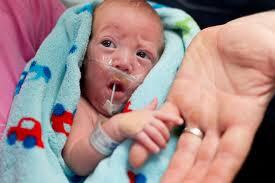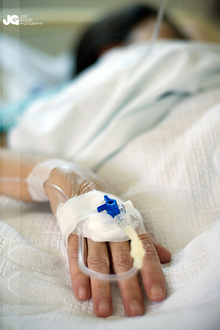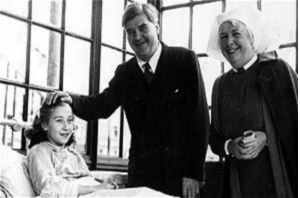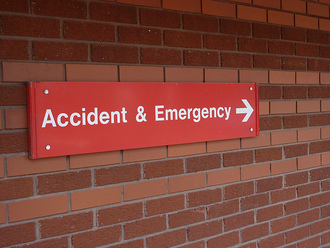-
MARIJUANA OIL CURES CANCER - GOOGLE ITTHE RIGHT TO LIVE saving lives not lining the pockets of the big pharma companies158 of 200 SignaturesCreated by gerard gillen
-
Genetic Testing to be offered in ALL cases of Sudden Unexplained DeathApproximately 1,000 young people (aged between 1 year and 30 years) die suddenly and without medical explanation every year in the U.K alone, leaving families with one burning question-WHY? A new test known as Genetic Autopsy can provide answers for up to a third of these families (up to fifth of S.I.D.S (cot death) cases) and,in some cases, can highlight the potential for death in siblings/family members. We want ALL families affected by Sudden Unexplained Death to be offered this test to provide answers and reassurance.735 of 800 SignaturesCreated by Tracy Marshall
-
Privatisation: Grainger Medical Group GP Surgery, Benwell, NewcastleOn September 1st, the Grainger Medical Group GP Practices in Benwell, Newcastle were handed over to the private healthcare company Care UK. This followed a tendering process that was obscured from public view, with patients at the practice only finding out that their GP was being tendered out after the contract had been awarded to Care UK. Care UK have a poor track record of providing GP style health care services. In the past they have lost 6,000 X-ray records, and turned away a patient from an urgent care centre, who in fact had meningitis, because of the terms of their contract. Staff at the practice have resigned in protest at the decision. The Council has the power to scrutinise the tendering process, yet did not look at the bidding process. This is a serious error of judgement and does not bode well for the ability of supposed scrutinising bodies to play their role in an increasingly privatised NHS. With the passing of the Health and Social Care Act 2012, private providers will become increasingly common place in our NHS. It is important our elected representatives hold them to account.177 of 200 SignaturesCreated by Peter Campbell
-
Stop the closure of the Special Care Baby Unit at Withybush HospitalThe Special Care Baby Unit (SCBU) is the only one in Pembrokeshire. By closing it, newborn babies will have to be sent to Glangwili Hospital in Carmarthen, a round trip of around 80 miles in a rural area. Many babies will not survive this trip and parents will not be able to visit their babies due to the long distance and difficulties with transport in this area. This will have a long-term knock-on effect with the parents not being able to bond with their babies. My daughter was born six weeks premature and without the care she received immediately after birth in SCBU she would not have survived. She is now a healthy 25 year old with two sons and a daughter of her own, my gorgeous grandchildren who are the light of my life. My youngest granddaughter also needed special care when she was born prematurely, she was several months early and tiny. She is now, thanks to the care and dedication of the staff on SCBU, a healthy and happy 3 year old. My son and his wife would have been unable to spend any time with her if they had been forced to travel to Carmarthen. Giving birth to a baby that needs special care is stressful enough without adding extra problems for the parents. They need to be able to visit their baby often, especially if Mum is breastfeeding and forcing them to travel to Carmarthen will make an already hard time even harder. Most young families don't have their own transport and public transport in this area is almost non-existent.10,469 of 15,000 SignaturesCreated by Elaine Watson

-
Lung CancerPeople die of lung cancer . All to often the person with lung cancer cannot be helped at it is too late to cure it131 of 200 SignaturesCreated by Jim Wingham
-
B12 Testing & TreatmentIts Important that this test is done as symptoms can be relieved by supplementing with B12 which cost as little as 50Pence per Ampule , saving NHS Billions Pounds, and saving Billions on welfare assistance , saving millions of people in UK from suffering from this deficiency and getting diagnosed with more serious conditions . Dr. Chandey as done so much research into this condition and as helped Thousands of people back to Health , many have been in Wheelchairs. Also Martin Hooper as just published a book on The Forgotton Illness . This as long been neglected by NHS not testing for B12 deficiency .!!414 of 500 SignaturesCreated by Gillian Broughton
-
Make Kirklees Locala accountableCommunity Interest Companies, CIC, are being formed from various parts of our NHS, for example District Nurses, school nurses, cottage hospitals and as such are not required and will not answer any questions under the Freedom of Information Act. We cannot find out about such things as MRSA rates, staffing rates, number of lost records, bullying, pay rates for senior executives, etc. CIC are funded by us out of the NHS budget but we have no rights to ask what the money is being spent on and how successful the spend has been. They say they are "Not for profit" companies but that does not mean they are not a "Not for loss". The Huddersfield Examiner ran an article on the situation http://www.examiner.co.uk/news/local-west-yorkshire-news/2012/05/18/holme-valley-hospital-s-privacy-over-public-information-86081-30994333/ These are your services, you family members, children that depend and use these services so do we not have the right to ask uncomfortable questions and find out where our money is being spent and how efficiently it is being used.131 of 200 SignaturesCreated by Terry Hallworth
-
Keep Lambeths NHS Counselling Service safe and effectiveA several million pound publicly funded contract has been agreed but not yet signed by NHS Lambeth. The money is not being spent on employing qualified and experienced counsellors by The Awareness Centre who has been subcontracted to provide counselling. There has not been any transparent discussion on the role of trainee counsellors in Lambeth and nobody in Lambeth has been properly consulted about the change to services. The current counselling service that provides experienced and qualified therapists for patients registered with GP's in Lambeth is being replaced by a private organisation that uses trainees and volunteers only. This means that they don't get paid (and even have to pay for their internal training) and that they will be working alongside no qualified staff. This is both unethical for patients and for trainees. I have been working for the NHS since 1984 and the complexity of cases has got harder and harder and I dread to imagine the impact this will have on patients and staff.786 of 800 SignaturesCreated by Carolyn Emanuel
-
NO TO POSTCODE PAYThe consortium – which includes Salisbury NHS Foundation Trust – aims to cut pay for nurses, doctors and other healthcare staff by up to 15 per cent at a time of unprecedented change and financial pressures in the health service A total of 20 trusts across the south west are ploughing £200,000 into the cartel in an attempt to introduce radical changes to pay and conditions through a regional pay system. The proposals – which could include making staff work longer hours with less annual leave and smaller pay packets – would undermine the national pay system that provides a fair and transparent system and ensures health managers anywhere in the country can recruit staff with the right skills and experience to give patients the right care. The proposals will be bad for staff morale and have an adverse knock-on effect for patient care. It will damage recruitment at the hospital and cause staff instability as fewer people are attracted to work in a low pay zone. With a workforce of 4,000 at Salisbury, lower local pay will also hit the local economy.109 of 200 SignaturesCreated by Dick Bellringer
-
Save A&E at Trafford GeneralPatients will face longer journeys to A&E at other hospitals in Manchester and longer delays for treatment because these hospitals are already working well above their planned capacity. Patients lives in Trafford will be put at risk if they are stuck in traffic jams when they need emergency care. And loved ones face longer, more expensive journeys to visit patients in hospitals outside the borough. See www.savetraffordgeneral.com2,959 of 3,000 SignaturesCreated by Matthew Finnegan
-
A National Suicide Bereavement ServiceIn Britain there is a suicide every 90 minutes and research suggests that it could be three times higher than this, as coroners often return verdicts of misadventure or open verdicts. For every suicide 6 to 8 people are intimately affected, with many more having resultant bereavement problems. To lose someone you love through suicide is indescribably awful. It has been referred to as a personal holocaust. People torture themselves with a million questions of ‘Why?’ There is a whole kaleidoscope of emotions and feelings stirring around in a pit of despair. The sense of rejection can be crushing too. How can he have loved me to do what he did? Then there is the searing guilt - if only I’d done this or that-the replaying in the mind of countless permutations of possible scenarios of what may have been. Over 30 years ago, I was bereaved through my father’s suicide. At that time there was no support available to my sister and I, other than what we could offer each other. It was incredibly hard. My sister became depressed and I went with her to see a psychiatrist who just told her to take tablets. There was no referral to a counsellor to whom she could ventilate her feelings. I was only 19 at the time and knew nothing about mental health problems and distress. However, common sense and intuition told me she needed someone to talk to but this was not on offer. The tablets had all sorts of nasty side effects and my sister gave up taking them. As a consequence, she became more depressed and suffered with depression for many more years. It is a fact that people bereaved through suicide are more likely to have mental health problems and be at increased risk of suicide themselves. In general terms, men have a lot more difficulty than women discussing their emotional issues and problems. Male macho culture, and the concept that ‘big boys don’t cry’ is still very much around and accounts for the fact that many more men than women take their own lives. There is also a strong need to develop culturally sensitive suicide bereavement/prevention services to people from ethnic minorities and asylum seekers and refugees. Another important need is to develop a suicide bereavement service for children and young people this by its very nature will demand a skilful, sensitive and specialised response. Another area of concern are mental health workers who loses service users through suicide. These workers need help and support in the distress that they are experiencing and often with the guilt around their perceived professional failure towards the person they have lost. We need to build a coalition of interested organisations to develop a national suicide bereavement response this also needs to be incorporated into the National Suicide Prevention Strategy similar to that developed in Australia. Presently in Britain we have a number of voluntary groups trying to provide a good service but limited by inadequate funding. This leads to a postcode lottery with some provision in some places and little or nothing elsewhere. Suicide bereavement and prevention are opposite sides to the same coin if we do not provide good support to those bereaved through suicide we will have further suicides. There is a lot of good evidence that properly run Suicide Bereavement support groups save lives and help to reduce mental and emotional distress. I was involved in running the Leeds organisation of Survivors of Suicide for 15 years and I know that during that time the group really helped many people bereaved through suicide and I am sure it played an important role in preventing further suicides. The Samaritans have people bereaved through suicide as one of their priority groups. I gave a keynote speech at the National Samaritans Conference in September 2009 on the “Impact of Suicide on Others” and highlighted the need for a national response. This is clearly necessary as, every day, people are being bereaved through suicide. They are an overlooked, badly neglected group of people, whose acute needs and problems are very considerable and warrant a compassionate, well-organised and systematic response. If we live in a civilised society is this too much to ask? Common humanity demands that we take effective action but, in addition, a fully funded National Suicide Bereavement Strategy would, in fact, prove to be very cost-effective because of its effect of in relieving mental distress and helping to reduce further suicides’. We desperately need a national, well-funded, organised, compassionate response to people bereaved through suicide throughout the country as soon as possible. I am delighted to say that the Samaritans are very supportive of the need for this. Mike Bush Consultant in Mental Health Retired Mental Health Social Worker Member of the Leeds Suicide Prevention Strategy Member of the All Party Group Suicide and Self Harm Prevention517 of 600 SignaturesCreated by Mike Bush
-
Save North Tees & Hartlepool HospitalThe NHS is very important to us as it is to millions of people in this Country.Myself and family have a lot to thank the doctors,nurses and staff as they saved the lives of our two grandchildren when they were babies both suffered from a virus which nearly killed them both. Thanks to the doctors and nurses they are both fit and well aged 11 years old and 8 years old.Our son who has a genetic conditon also has a lot to thank our local hospital and a hospital in Sunderland who done their best for our sons eye sight they give him years of sight and fought very hard to save his sight but sadly 3 years ago he lost his sight.He then went on to have a stroke at the age of 24 years old through the skill and care he recieved by James Cook Hospital he has pulled through with no lasting effects. So for us our NHS is the best in the World and fighting these cuts in services like a hospital a few miles away from us is having to run a monthly care boot sale to pay for front line services.This should not have to happen to our NHS we care passionatly as we do about our GP's service.Thank You.Ron,Viv190 of 200 SignaturesCreated by Ron Carter-Bonsteel
Hello! We use cookies to improve your experience by providing insights into how the site is being used. Find out more.












